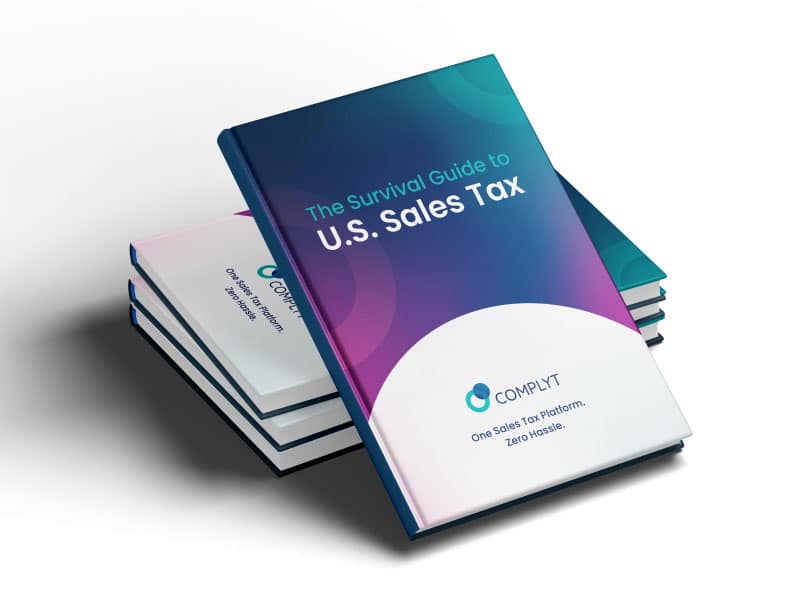What is the sales tax rate in Hawaii?
Strictly speaking, Hawaii doesn’t require businesses to charge sales tax. Instead, Hawaii applies something known as the General Excise Tax (GET). It is unlike other state’s sales taxes because it’s applied to a broader range of business activities.
The standard GET rate is 4%, but Honolulu County (Oahu) charges an additional 0.5% surcharge, bringing the total GET rate to 4.5% in that county.
GET is imposed on a broader range of activities than the typical sales tax, including wholesale sales, rentals, services, and royalties. Businesses in Hawaii often pass on the GET to consumers, similar to how other states’ businesses pass on sales tax. However, because it’s a tax on the business rather than the consumer, businesses in Hawaii are not legally required to pass on the GET to their customers.
When should your business collect Sales Tax in Hawaii?
In Hawaii, businesses are required to collect the General Excise Tax (GET) when they are engaged in any business activity in the state that earns them income. This includes sales of goods, provision of services, and other types of business transactions. The requirement to collect GET applies to both traditional brick-and-mortar stores and online sellers.
If your business has a presence or conducts activities in Hawaii, you must register for a GET license with the Hawaii Department of Taxation. Once registered, you will be required to collect and remit GET on all qualifying transactions.
If your business sells to customers outside of Hawaii, you are not required to collect GET on those transactions, as the tax only applies to sales made within the state. However, if your business has established a tax nexus in another state, you may be required to collect sales tax in that state.
Hawaii Physical Sales Tax Nexus
A business is considered to have a physical nexus in Hawaii if it has a physical presence in the state. This includes having a physical location like an office, store, warehouse, or other facility. It also includes having employees or agents operating in the state on behalf of the business.
GET Physical Nexus checklist for Hawaii
To determine if your business has a physical nexus in Hawaii, consider the following:
- Do you have a brick-and-mortar location in Hawaii?
- Do you have employees or representatives working in Hawaii?
- Do you store inventory in Hawaii?
- Do you regularly conduct business in Hawaii, such as attending trade shows or meeting with clients?
If you answered ‘yes’ to any of these questions, your business likely has a physical nexus in Hawaii and is required to collect and remit GET.
Hawaii Economic Nexus Threshold: Revenue, Thresholds and Transactions
In addition to physical nexus, businesses can also establish an economic nexus in Hawaii. Economic nexus is based on the amount of sales revenue or the number of transactions a business conducts within the state.
Hawaii’s economic nexus thresholds are $100,000 in gross sales or 200 separate transactions in the state within the current or preceding calendar year. If your business exceeds these thresholds, you will be required to register for a GET license and collect and remit the tax.
Keep in mind that the thresholds apply to all sales, not just taxable sales. Even if your business sells products or services that are exempt from GET, those sales still count towards the economic nexus thresholds.
Hawaii General Excise Tax: How to Calculate What Your Business Should be Charging
In Hawaii, the General Excise Tax (GET) is imposed on the gross income of businesses, including the sale of products.
To calculate the GET for a transaction, multiply the gross income by the applicable tax rate. For example, if you sell a product for $100 in Honolulu County, the GET would be $4.50 ($100 x 0.045).
While the GET is technically a tax on businesses, it’s common practice for businesses to pass the tax onto customers by including it in the price of the product or service. Businesses must clearly state the inclusion of the GET in the price or on the receipt.
How much is Hawaii clothing tax?
Hawaii does not have a specific clothing tax separate from its GET.
The GET applies to the sale of all tangible personal property, including clothing, at a rate of 4% statewide, with an additional 0.5% surcharge in Honolulu County (Oahu). Therefore, clothing purchases in Hawaii are subject to the GET at the applicable rate.
Hawaii Online Sales Tax: Are SaaS and Digital Services Taxable under GET?
In Hawaii, GET applies to a broad range of business activities, including the sale of digital services and Software as a Service (SaaS) products. If your business sells digital services or SaaS products to customers in Hawaii, you are required to collect and remit the GET at the applicable rate.
SaaS Sales Tax Hawaii: Should I charge sales tax for SaaS?
Yes, businesses selling SaaS products to customers in Hawaii need to charge the GET at the applicable rate. The tax applies to the gross income from the sale, regardless of whether the service is delivered electronically or through other means.
As such, the question of Hawaii SaaS sales tax becomes moot, as GET is applied across all business activity.
If your business exceeds the economic nexus thresholds of $100,000 in gross sales or 200 separate transactions in Hawaii within the current or preceding calendar year, you are required to register for a GET license and collect and remit the tax on your SaaS sales.
How can a business get a GET license in Hawaii?
In Hawaii, businesses need a General Excise Tax (GET) license to operate and collect tax from customers. Businesses should visit the Hawaii Department of Taxation website, where they can apply for a GET license online or download the application form to mail in. Note that there is an application fee of $20.
Hawaii General Excise Tax Return Due Dates Explained
In Hawaii, the frequency of your GET filings depends on your tax liability:
Monthly filers: If your annual tax liability is $4,000 or more, you must file monthly. Returns are due on the 20th of the following month.
Quarterly filers: If your annual tax liability is between $2,000 and $4,000, you must file quarterly. Returns are due on the 20th of the month following the end of the quarter.
Semi-annual filers: If your annual tax liability is between $1,000 and $2,000, you must file semi-annually. Returns are due on the 20th of the month following the end of the semi-annual period.
Annual filers: If your annual tax liability is less than $1,000, you can file annually. Returns are due on the 20th of the following January.
Understanding and complying with Hawaii’s General Excise Tax can be complex, but following these guidelines will help ensure your business remains in compliance. But there is an even easier way to simplify your Hawaii General Excise Tax compliance: using Complyt’s automated sales tax compliance software. Book a demo to see how we do it.

